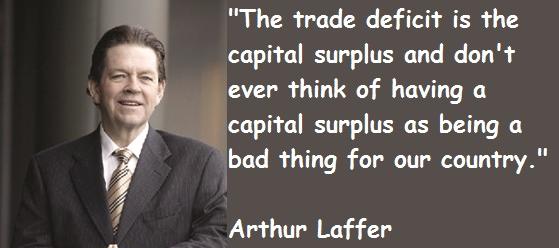False Compassion
Next Magazine (2014.08.28, A002, Second Opinion, Bill Stacey)
It is the gift of a great economist to be able to make complex issues simple. Art Laffer reached public greatness with his insight that there is a level of tax rates that is so high that even with higher rates, revenue would decline. Laffer was in Hong Kong last week and some of his most penetrating insights are particularly cogent for debates in Hong Kong.
In recent works he has studied in detail the impact of state income tax in the US and taxes on tobacco. This is very relevant to Hong Kong. State income tax rates in the US range from zero to 12.3% (in California) and provide an ideal laboratory to study the impact of changing tax rates and introducing new tax levies at levels that are similar to those in Hong Kong. The lessons are clear, states with no income tax have more population growth, more employment growth, better economic growth and also more growth in government revenue. His studies show that the introduction of new state and local taxes have a devastating impact on economic performance.The arguments for higher state taxes are always the same. A small increase won’t matter, but the change will buy better education, services or dignity for the elderly. Yet Laffer also shows that the outcomes on these measures are always worse in states when taxes are increased. Higher tax rates do matter.This especially relevant in Hong Kong where the government Commission on Poverty has put forward a proposal to increase taxes on employment by up to 5% to create a “universal” pension fund. Economically it does not matter whether taxes are formally levied on either employee or employer, they increase the cost of employing people and reduce take-home pay. Taxes reduce incentives to work, prompt people to move or rearrange their financial affairs so those taxes are not levied and prompt employers to hire less people.So proposals for higher taxes rarely raise as much money as proponents expect and the dynamic effects on the economy reduce growth. Nor is it feasible to tax sin (smoking and drinking) enough to pay for pensions. The universal pension schemes proposed for Hong Kong rely on an egregious increase in taxes of up to one third and still do not fully fund the scheme. Introduction of the scheme would lead to expectations of even higher taxes in the future. This fear of higher taxes would impact investment, savings and growth. A universal scheme would also change patterns of saving and self-provision for old age as well as family support.The evidence is clear that higher taxes to fund a universal pension scheme would reduce employment growth, accelerate the problem of aging population and actually result in less resources for people to fund their retirement.The very idea that the government should provide a universal scheme to fund retirement is founded in an ideal of “cradle to grave” state support that is at odds with Hong Kong’s traditions of freedom and the associated responsibilities. The only way to provide for an aging population is to ensure the productivity, future output and open economy that allow retirees and their families to support themselves and those they believe are in need of support.People are living longer and more productive for longer. It is not a bad thing that we can work a few more years and with an increasingly flexible labor market, may be able to earn money well past formal retirement. These trends will continue, but only if we don’t saddle the economy with burdens that make funding an aging population more difficult. Already the minimum wage has displaced older people in the workforce. A universal pension scheme is false compassion. Experience internationally is clear that proposals that are not fully funded, not based on individual accounts and do not give people the freedom and flexibility to provide for themselves lead to deficits, debt and more poverty. We owe it to ourselves to learn from this experience and not allow politicians to try to buy our support with free lunches and impossible dreams.
Bill Stacey is in his 10th year as a resident of Hong Kong and is Chairman of the Lion Rock Institute.We are now on Facebook http://www.facebook.com/

